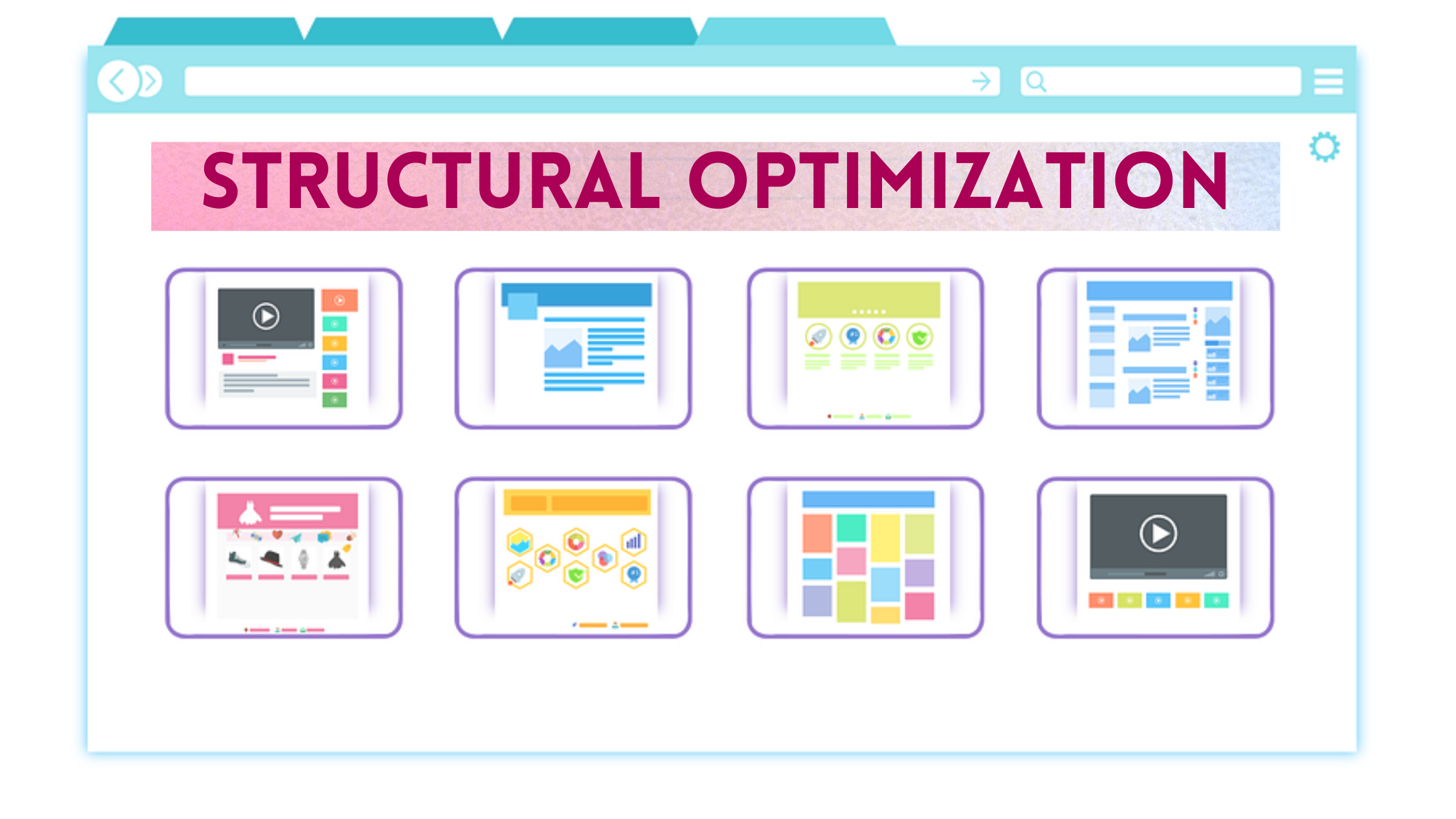Technical Search Engine Optimization
Re-aligning your website and logically grouping them under a set of keywords and linking them is significantly important for the search engines to understand your website’s structure.
Structural SEO – A Scientific Approach To Drive Traffic
Structural optimization, also known as Structural SEO, is the technique of aligning your website’s pages in a way that it helps it to rank well in the search engine results for multiple combination of keywords. E-commerce websites and online marketplaces are strongly built on Structural SEO to attract online footfall and engagement.
The key steps to achieve a structurally optimized website include
- Identifying the right keywords that land users on the relevant pages
- Having application/marketplace specific landing pages
- Dedicated pages for the features of products/services/solutions
Few Challenges in implementing structural SEO
- Creating SEO Collaterals: A web development team has to spend a lot of time in creating the Static URLs, Key landing pages, Sitemaps and internal linking structure.
- Design: It takes a significant effort for a web designer to strike the balance between the art of the website design and the science of structural SEO.
- Content: A website’s content writer plays a crucial role in building unique content for every landing page, adding value to the visitors landing on these pages.
For the structural SEO to succeed, it is very important to have the right web design and development team who can work cohesively with the SEO team to implement the right strategies.

Code Optimization
Website Code Optimization
Websites are typically built using HTML, CSS and Javascript to render websites for the users. Though coding skills are not essential prerequisite for a SEO expert, it is necessary to understand how a website is structured for the understanding by search engines.
Usage of proper HTML coding standards is essential for a search engine spider to crawl, index and rank a website. A webpage’s HTML elements are the essential build blocks of the website. Any incorrect usage of the HTML elements may attract penalties that may result to non-indexing of webpages.
Besides HTML, structured data plays a significant role in getting a website indexed. Generating an understandable Schema.org or JSON-LD structured data makes the website eligible for indexing and ranking.
The source code on the website is what the spiders read to conclude where your site should show up in the rankings (along with many other factors). Having website code optimization done periodically, will make sure that all of the related webpages of your site are accurately indexed. Apart from HTML optimization, secure certificate installation, we apply best practices such as externalizing CSS and JavaScript and eliminating white space and comments in the code that can stop the spiders from finding and indexing your content in a timely and efficient manner.
How Is Code Optimization Relevant To Seo?
Another important key factor when it comes to code optimization for SEO is page load time. Kloudportal can assist clean up any “code bloat”, ensuring that your pages load rapidly and are therefore indexed rapidly. This step is not always essential in the optimization process- though that will be evaluated throughout the website analysis phase of the campaign.
About Web Design From Our Content Factory
7 ways to improve your customer service for your e-commerce business in 2020
By Prashanthi KolluruCustomer service is now seen by a majority of consumers as "very important" and customer service...
How the Right Customer Service Teams can make a difference?
By Prashanthi KolluruIn a business sector overloaded with competitors selling similar products, we have learned time...
10 Great Customer Service Tips to Improve your Customer Satisfaction
By Prashanthi KolluruThe golden key to any successful business is customer service – if you don't have it, act...




